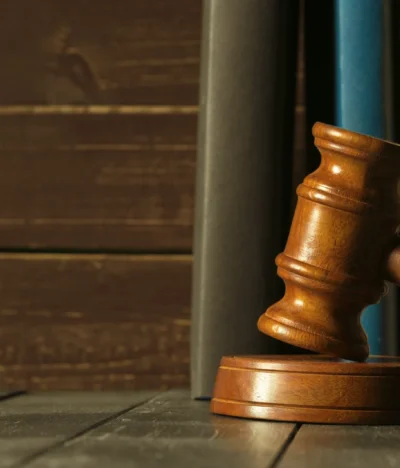Understanding the UK Immigration Appeals Procedure – What happens and at what stage of the process?
By Section 82(2) of the Nationality, Immigration and Asylum Act 2002, the immigration appeals procedure is outlined – an appeal can be made against an ‘immigration decision’ as defined with the act. This includes (but is not limited to) refusal of leave to enter the UK, refusal of entry clearance, refusal to vary leave to enter or remain in the UK and a decision to make a deportation order. Note, however, that certain types of applicants, such as those applying for entry clearance as visitors, cannot appeal under Section 82 of the act.
The Immigration (Notices) Regulations 2003 provide that a decision maker (e.g. an entry clearance officer, immigration officer or the Secretary of State) must give written notice to an applicant in relation to any immigration decision taken which attracts a right of appeal. The notice must include a statement of the reasons for the decision to which it relates. The statement must advise the person of his or her right of appeal and the statutory provision on which the right of appeal is based. The notice must include the relevant immigration appeals procedure to follow and provide a deadline in which to appeal by.
The reasons an applicant can rely upon when following the immigration appeals procedure to make an appeal are contained within Section 84 of the Nationality, Immigration and Asylum Act 2002. An applicant can rely on one or more of the grounds set out within this section. If an appellant fails to disclose all relevant grounds of appeal, any attempt to raise new grounds at a later stage may lead to no appeal being allowed against the decision. Alternatively, (and more likely) a court will simply not entertain the new grounds relied upon by the appellant.
There are different stages and levels to the immigration appeals procedure which are set out as follows.
First-tier Tribunal (IAC)
An appellant appealing in the UK to the IAC must give notice of appeal within five working days of receiving the decision if in detention, otherwise the time limit is usually 14 working days. If the appellant is outside of the UK, the deadline is 28 calendar days after receiving notice of the decision.
At first instance, an appellant’s appeal will be heard at the First-tier Tribunal (Immigration and Asylum Chamber (IAC). All IAC appeals are heard in various appeal centres across the UK. An appeal to the IAC may only be started by giving notice of appeal on a prescribed form. An initial case management review hearing will be held when the issues are complex and there is a large volume of paperwork to consider. Directions are usually issued as to the filing of evidence.
At the full hearing an immigration judge will consider the evidence and the submissions of both parties and decide whether or not to uphold the decision of the Respondent (i.e. the Secretary of State). A judge will issue, within 2-4 weeks after the full hearing, a document called ‘Determination & Reasons’ which sets out the judgment and the reasons for arriving at that judgment.
Either party may appeal against the determination to the Upper Tribunal. This must usually be done within 5 to 7 working days or longer if the appellant is outside of the UK.
Upper Tribunal
An appeal against the decision of a First-tier judge lies on a point of law and permission is first required to appeal to the Upper Tribunal. The time limit for asking the Upper Tribunal for permission to appeal is 14 days after the date on the decision if you are inside the UK and a month after the date on decision of you are outside the UK.
The documents that must send with the application shall include the decision by the First-tier Tribunal, the ‘notice of refusal of permission to appeal’ by the First-tier Tribunal or the ‘refusal to admit the application for permission’, a statement clearly setting out your reasons for why you think the First-tier Tribunal made a mistake and you also need to include any written evidence that shows why you think the First-tier Tribunal made a legal mistake.
If both the First-tier Tribunal and the Upper Tribunal refuse permission to appeal, that decision can be judicially reviewed as the Tribunals constitutes a public body.
If permission to appeal is granted, then the Upper Tribunal will hear the case and determine whether or not the judge of the First-tier Tribunal made an error of law. A judge of the Upper Tribunal will then determine the outcome of the case and issue Determination & Reasons as before. If the Upper Tribunal decides that a mistake was made it can either overrule the decision and make its own judgement or order the First-tier Tribunal to hear the case again.
Either party may then choose to apply for permission to appeal to the Court of Appeal. This must usually be done within 12 days of receipt of the Upper Tribunal’s determination if you are inside the UK and 38 days if you are outside the UK.
Once you have the permission you should appeal to the relevant higher court within 28 days of being given permission (this is for appeals that are made in England and Wales, the time limit is 42 days for appeals made in Scotland and 21 days for appeals made in Northern Ireland).
Court of Appeal
The Court of Appeal has the power to give any decision which might have been given by the IAC. It can also remit the matter for rehearing and determination by the IAC and then may offer the IAC its opinion and make directions with which the IAC must comply. If you are still not satisfied with the decision of the Court of Appeal, you can apply to the Supreme Court for permission to appeal. It should be noted that Supreme Court grants permission only if the there is an arguable point of law and it is of general public importance.
Negotiating the immigration appeals procedure can be both complex and daunting. It is therefore recommended that you seek the advice of an immigration solicitor at an early stage.
To see how we can assist you with the immigration appeals procedure please visit our website or contact our Immigration Law Department at +44 (0) 1273 696962. Alternatively, request a callback, or email info@arlingsworth.com. You can also follow us on Facebook, Twitter and LinkedIn for any other important news and updates.







